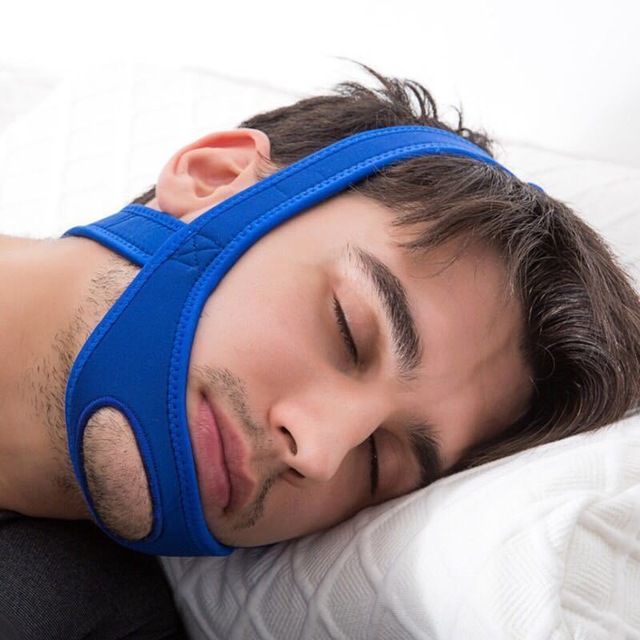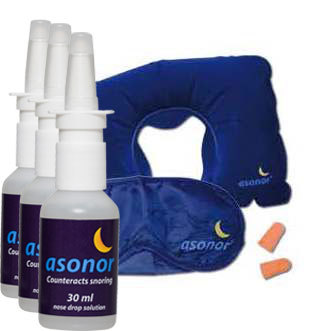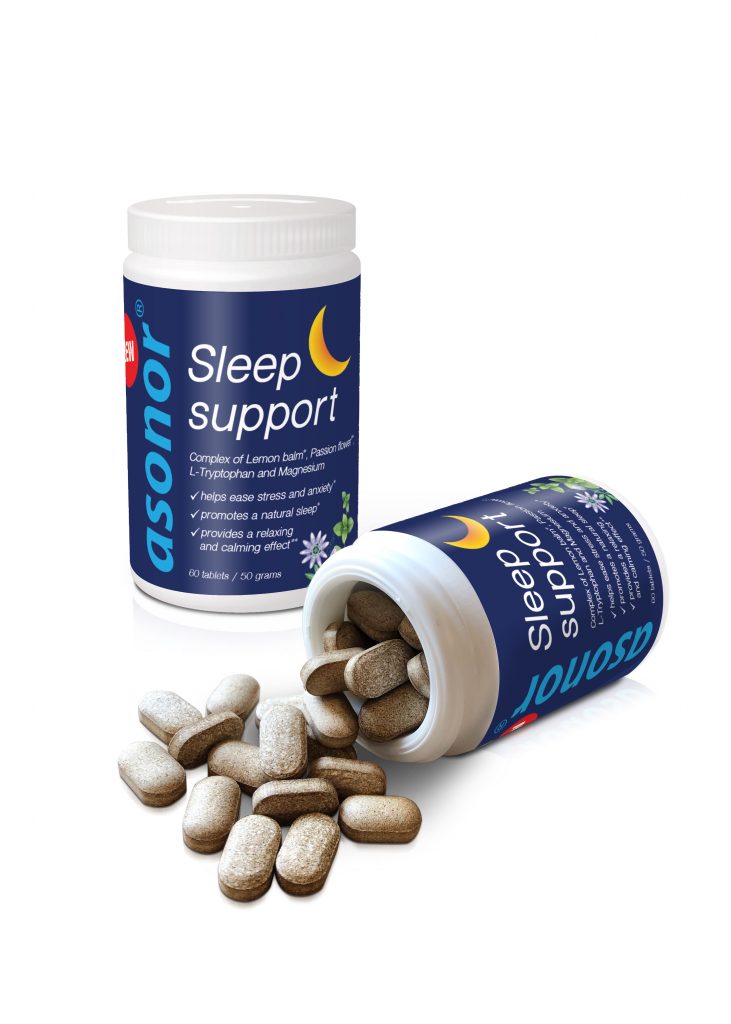Simon swore never to snore again only to falter later. The following night he was at it again. Deep slumber had engulfed him and made him completely oblivious to the woes of his fiancé yet again. She sat on the corner of the bed, a frown of disgust spread across her face. She vowed to break up with him for she had had enough of those sleepless nights and was completely fed up now.
This was to give you some idea about how mind-boggling a menace this seemingly small problem can become. And to ensure that you don’t end up like Simon, we have the following remedies and tips to stop snoring for you-
1.Get Rid of that Belly Fat
Being obese brings with it a myriad of problems. Apart from the increased risk of major life-threatening diseases, it is also known to play a role in exacerbating the malaise of snoring. Obesity leads to a deposition of fat in the throat tissues which causes an increase in sound when these tissues vibrate during sleep. Another possible remedy is to raise the head end of your bed by about 4-5 inches. This can ameliorate the situation by making your air passage more open than it was before.
2.Get the Position Right
Sleeping on the back carries with it the risk that the tongue may fall backward and block the airway partially especially if the throat muscles are loose. This makes the passage of air difficult which means the snoring will only increase in intensity. Therefore, sleeping on one side is advised to snorers so that the tongue doesn’t become an obstruction.
3.Use Nasal Sprays
If you are a habitual snorer, use nasal sprays or other such tools that can help you combat the problem quite effectively. Nasal sprays lubricate the mucous membrane and tighten the throat tissues. While there are many other forms of treatments, nasal sprays are one of the least intrusive methods and quite effective at the same time
4. Ditch the Alcohol
Avoid alcohol at all costs before sleeping. Its consumption relaxes the muscles of the throat a bit more than normal causing even the non-snorers to start snoring. No prizes for guessing what effect it will have on regular snorers then.
5. Drink adequate water
Drinking plenty of water before sleep helps keep snoring down to the minimum. In the absence of water, nasal and oral secretions gets stickier leading to more friction in these oral sections. Consequently, snoring assumes bewildering proportions with no sign of subsiding.
How to stop snoring is one of the most frequently asked health questions. Therefore, it becomes imperative that you tackle this menace sensibly and take appropriate corrective measures like the ones listed above. Seemingly meager, this irritating habit can prove to be a real spoiler for those around you, especially if they are trying to get a good sleep. Don’t let things get to the point that it becomes a major cause of misery. Act fast. Act now.
What Causes Snoring in the First Place?
Snoring is caused when there is a partial blockage of airflow when you are asleep. That causes throat tissues to vibrate. It is usually due to poor muscle tone, nasal congestion, alcohol consumption, and sleeping on their back. Other reasons include physical anomalies like deviated septum, enlarged adenoids and swollen tonsils while low soft uvula contributes to the snoring. Snoring is exemplified when you age as the muscle tone is lost. Additionally, snoring is one of the key signs of having Obstructive sleep apnea, wherein there are pauses in breathing during sleep. Lifestyle factors such as drinking alcohol, smoking and being obese can worsen your snoring. Finding the root cause of your snoring can help find the right remedy.
Lifestyle Changes to Help You Stop Snoring Naturally
The fact is that there are natural ways to reduce snoring. Lifestyle changes can help you stop snoring but you will need to ensure that:
- Maintain a healthy body weight. Extra layers of fat can narrow the airways and create obstructions in normal breathing, causing snoring.
- By side-sleeping, instead of sleeping on the back, you can stop the tongue from falling back into the throat, leading to partial airway blockage. That prevents snoring.
- It is recommended to avoid drinking alcohol or take sedatives before bedtime. That is because it relaxes the throat muscles, increasing the vibrations when you breathe during sleep, enhancing snoring.
- Have a proper sleep schedule that you adhere to. It allows the body proper rest and reduces snoring.
Proven Home Remedies to Reduce Snoring
By addressing the root cause of snoring, home remedies can bring you relief. These non-invasive, simple to use methods ensure a good night’s sleep:
- Elevate your head to keep the airways open
- Sleep on your side so that the tongue does not fall back into the throat creating a blockage for normal breathing.
- Lose excess weight as fat layers around the neck can stifle free flowing air through the nasal passages by compressing airways
- Stay hydrated as it reduces dryness in the throat and limits nasal congestion
- Practice good sleep hygiene as it minimizes episodes of snoring as the body is well-rested.
- Use of anti-snoring devices such as mouthguards, nasal sprays, nasal strips and chin straps. CPAP devices are prescribed to those with sleep apnea
Anti-Snoring Devices: Do They Really Work?
Anti-snoring devices do work to help reduce snoring effectively, based on the reason behind your snoring. Usually, these are not effective if you have sleep apnea. Some of the effective anti-snoring devices are:
- Mandibular advancement devices (MADs) – These put the jaw in place and hold it so that the airways stay open for optimized breathing. It works for those with mild to moderate snorers.
- Tongue stabilizers hold the tongue in place so that it does not fall back into the throat.
- If there is nasal congestion, then using nasal dilators can help.
- Chin straps and anti-snoring pillows are effective in helping stop snoring
Each individual reacts differently to the stop snoring devices as the underlying cause varies. Consulting a doctor or sleep specialist becomes important in selecting the right device.
When Should You See a Doctor for Snoring?
You need to see a doctor when the snoring is loud, heavy and regular. And if it disrupts your sleep or there are multiple pauses in breathing when asleep, often waking up choking or gasping for breath, see a doctor immediately, as it maybe, sleep apnea. Usually, it is accompanied by morning headaches, excessive drowsiness during the day and difficulty in concentration.
You may need to see a doctor if lifestyle changes have not helped reduce the snoring. Persistent and loud snoring is a sign of impending health issues. A doctor might suggest sleep study or even recommend surgery if there are physical anomalies such as deviated septum, enlarged tonsils as the cause of snoring.
Conclusion
If you are able to identify the cause of your snoring, finding the right remedy to stop snoring can be easy. It can improve the quality of sleep and your health. Lifestyle changes can help if you suffer with mild to moderate snoring. These changes include avoiding alcohol and quitting smoking, elevating your head with pillows for open airways, sleeping on the side to losing weight. Additionally, you can use anti-snoring nasal sprays, nasal strips and nasal dilators to ensure that airways are wider and open for normal breathing. Mouthpieces and tongue stabilizers ensure partial blockages are removed for reduced snoring. Throat exercises can prevent airway collapse. With the right approach, snoring can be managed and even reduced considerably, helping you sleep properly.
FAQs
What is the best natural cure for snoring at night?
The best natural cure for snoring includes lifestyle changes such as sleeping on your side, quitting smoking, limiting alcohol intake before bedtime, having a healthy weight and staying hydrated. Additionally, using nasal sprays, anti-allergy medicines can help with nasal congestion while steam or saline sprays can help in clearing blockages for quiet nightly sleep.
Can lifestyle changes stop snoring permanently?
Yes, lifestyle changes can help you reduce or even stop snoring especially if it was mild to moderate snoring. By losing weight, improving sleep hygiene, sleeping on your side, avoiding alcohol before bedtime and quitting smoking can help you get the desired rest, improving quality of sleep.
Are home remedies effective for snoring relief?
Yes, home remedies are effective if you snore mildly or you are a moderate snorer. Some of the home remedies include steam inhalation and nasal rinses to reduce nasal congestion, making lifestyle changes such as losing weight, sleeping on your side, staying hydrated, elevating your head and reducing alcohol intake to ensure the airways stay open.
Which anti-snoring device works best for heavy snorers?
The best anti-snoring device that is effective for heavy snorers includes Mandibular Advancement devices (MADs) that reposition the jaw to keep the nasal passages and airways open. Additionally, CPAP machines are effective if you suffer with sleep apnea. Consult with a sleep specialist to know the best anti-snoring device.
How do I know if my snoring is a medical problem?
If your snoring is loud and heavy and you often wake up gasping for breath, have daytime drowsiness and morning headache, it might signal sleep apnea. Mood changes and poor concentration are signs of sleep apnea. Consult a doctor for the correct diagnosis.








